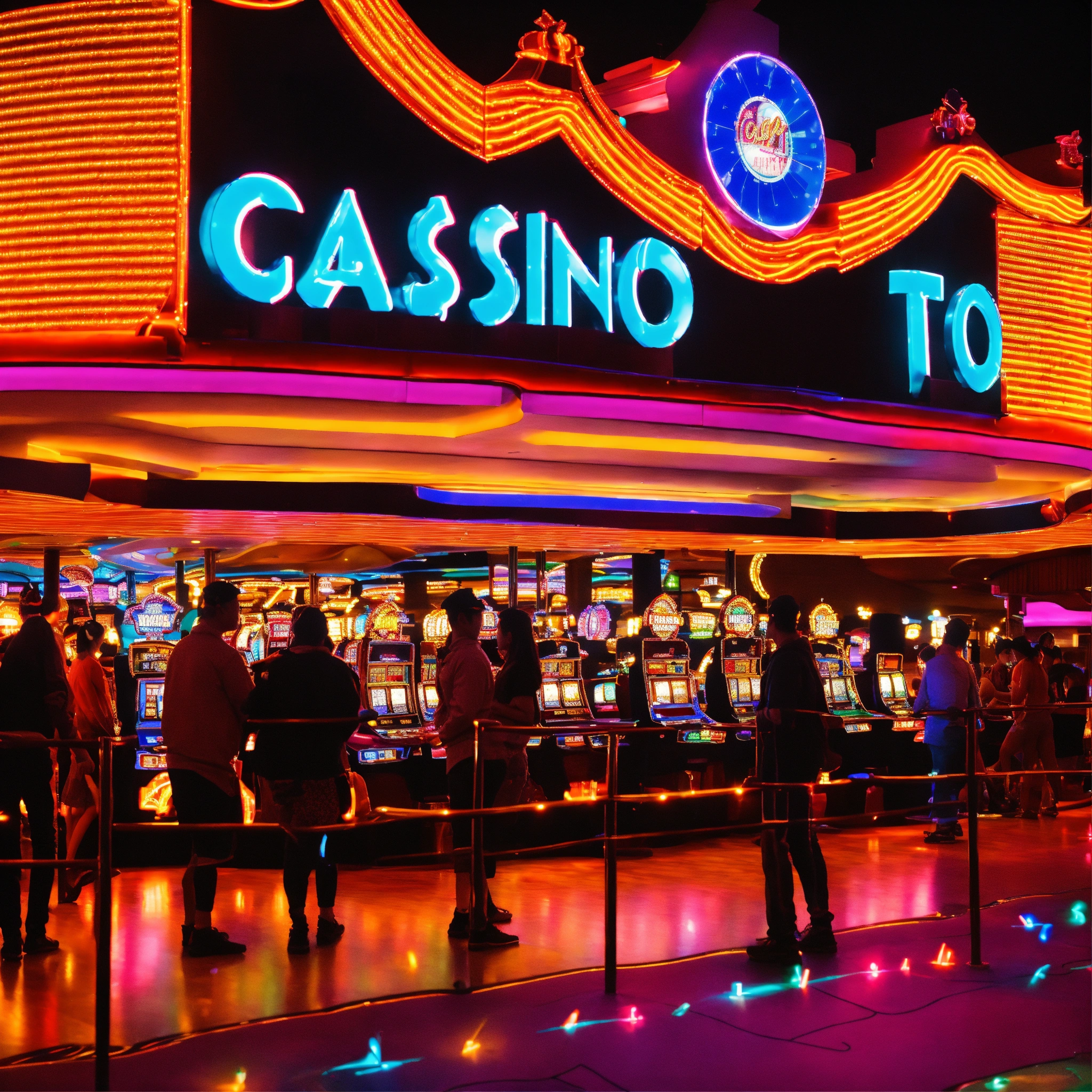Casino entertainment have long been a staple in human culture, offering not just entertainment but a captivating reflection of our hopes, wishes, and fears. From the rotating wheels of a slot machine to the tactical play of poker, these games encapsulate a range of human feelings and experiences. At their core, casino games are not just a chance to win money; they are a reflection of life itself, where risk versus reward converge and fortunes can change in an eye blink.
As players assemble around tables or sit in front of brightly lit machines, they participate in a ritual that transcends mere betting. These games reflect our instinctive desires for social interaction, excitement, and the search for fortune. They also unveil deeper truths about human nature, such as our relationship with fate and the adrenaline of the unknown. In exploring casino games, we reveal not only the rules of play but also the complex weave of the human journey, showcasing our intertwining narratives of aspiration and reality.
The Mind Behind Gambling
Wagering is deeply rooted in the psyche of individuals, appealing to various feelings and desires. The thrill of taking risks is a fundamental aspect that attracts participants, whether the thrill of spinning a roulette or the excitement of drawing a winning hand in a poker game. This rush of adrenaline is frequently likened to other forms of thrill, as the unpredictability of outcomes triggers a distinct psychological response. Players often become captivated by the possibility of winning big, leading to an almost magnetic draw toward casino games.
Additionally, a crucial component of the psychology behind gambling is the concept of hope and ambition. Participants often indulge in dreams of financial freedom and the luxurious lifestyle that can accompany winning. This optimism fuels their ongoing participation in casino games, as it provides a sense of purpose and the conviction that a transformative win could be just one wager away. The narrative of beating the odds and finding success resonates with many, reinforcing their dedication to play and engage with these games.
Finally, social aspects play a significant role in gambling psychology. Casino environments are designed to foster social interaction, where players gather to share the experience of wins and losses. This shared aspect not only amplifies enjoyment but also influences behavior, as individuals often mimic the actions of others around them. https://78win01.cfd/ The social validation found in mutual thrill can enhance the emotional experience, making casino games a mirror of not just personal desires but also collective engagement within the gambling community.
### Risk and Reward: A Double-Edged Sword
Gambling games embody the fragile balance between danger and reward that resonates deeply with the human experience. The rush of placing a wager is often accompanied by a rush of adrenaline, as gamblers are confronted with the possibility of a huge payout, yet fully aware of the possibility to lose. This twofold experience reflects a essential aspect of life: the decisions we face often come with built-in risks, and the chase for gain can push us to embrace risks we might not otherwise consider. In this way, casino games reflect real-world decisions, enticing players to gamble not just their capital, but also their aspirations.
The allure of jackpot prizes and winnings fuels a sense of optimism, inspiring players to envision a more promising future that could manifest from a lucky spin of the roulette or dealing of a hand. This optimism can motivate individuals to engage in more daring actions, urging them to take greater risks in search of financial gain. However, just as in life, the consequences of these risks can lead to both triumph and loss. The narratives of both jackpot winners and those who have suffered everything at the tables demonstrate the random nature of chance and its consequential impact on our existence.
Ultimately, the interaction of engaging with casino games serves as a strong reminder of the human condition. Every game played is loaded with the tension of risk, as gamblers weigh the rewards against the risks. This dynamic not only highlights the excitement that comes with betting but also unveils the risks that come with the urge for more. As we navigate the complexities of decision-making and results in both the casino and in life, we find that the quest for gain shapes our identities and journeys in deep ways.
Society and Loneliness in Gambling Culture
Casino environment is a unique mix of communal interaction and personal endeavor, reflecting the tensions of individual experience. Gamblers often gather around games, sharing in the thrill of the game, rejoicing in wins, and commiserating over losses. This social aspect is essential, as it fosters a sense of belonging and bonding among varied groups of individuals. Regular visitors to gaming establishments may form friendships and establish routines, turning the gambling venue into a second home where they experience connected to a greater community of gamblers.
However, the attraction of casino games can also lead to loneliness. As players become engrossed in the thrill of playing, they may withdraw from personal connections or fail to engage with the world outside the gaming space. For some, the search of a jackpot can overshadow genuine connections, leading to isolation. The experience of being surrounded others yet feeling solitary is not uncommon, as the focus shifts from collective fun to the individual concerns of each individual’s journey.
This interplay of community and isolation creates a rich mosaic that defines gaming atmosphere. 78WIN It highlights the complexity of human interactions, where joy and despair exist together. Gambling venues serve as both a sanctuary for social interaction and a stage for individual struggles, demonstrating how deeply connected our desire for connection and the personal quest for wealth can be. In navigating this landscape, gamblers confront their own narratives—seeking both the thrill of the game and the companionship of other players, ultimately reflecting the broader spectrum of individual experience.
